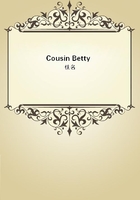
第53章
Crevel himself had married for money the daughter of a miller of la Brie, an only child indeed, whose inheritance constituted three-quarters of his fortune; for when retail-dealers grow rich, it is generally not so much by trade as through some alliance between the shop and rural thrift. A large proportion of the farmers, corn-factors, dairy-keepers, and market-gardeners in the neighborhood of Paris, dream of the glories of the desk for their daughters, and look upon a shopkeeper, a jeweler, or a money-changer as a son-in-law after their own heart, in preference to a notary or an attorney, whose superior social position is a ground of suspicion; they are afraid of being scorned in the future by these citizen bigwigs.
Madame Crevel, ugly, vulgar, and silly, had given her husband no pleasures but those of paternity; she died young. Her libertine husband, fettered at the beginning of his commercial career by the necessity for working, and held in thrall by want of money, had led the life of Tantalus. Thrown in--as he phrased it--with the most elegant women in Paris, he let them out of the shop with servile homage, while admiring their grace, their way of wearing the fashions, and all the nameless charms of what is called breeding. To rise to the level of one of these fairies of the drawing-room was a desire formed in his youth, but buried in the depths of his heart. Thus to win the favors of Madame Marneffe was to him not merely the realization of his chimera, but, as has been shown, a point of pride, of vanity, of self-satisfaction. His ambition grew with success; his brain was turned with elation; and when the mind is captivated, the heart feels more keenly, every gratification is doubled.
Also, it must be said that Madame Marneffe offered to Crevel a refinement of pleasure of which he had no idea; neither Josepha nor Heloise had loved him; and Madame Marneffe thought it necessary to deceive him thoroughly, for this man, she saw, would prove an inexhaustible till. The deceptions of a venal passion are more delightful than the real thing. True love is mixed up with birdlike squabbles, in which the disputants wound each other to the quick; but a quarrel without animus is, on the contrary, a piece of flattery to the dupe's conceit.
The rare interviews granted to Crevel kept his passion at white heat.
He was constantly blocked by Valerie's virtuous severity; she acted remorse, and wondered what her father must be thinking of her in the paradise of the brave. Again and again he had to contend with a sort of coldness, which the cunning slut made him believe he had overcome by seeming to surrender to the man's crazy passion; and then, as if ashamed, she entrenched herself once more in her pride of respectability and airs of virtue, just like an Englishwoman, neither more nor less; and she always crushed her Crevel under the weight of her dignity--for Crevel had, in the first instance, swallowed her pretensions to virtue.
In short, Valerie had special veins of affections which made her equally indispensable to Crevel and to the Baron. Before the world she displayed the attractive combination of modest and pensive innocence, of irreproachable propriety, with a bright humor enhanced by the suppleness, the grace and softness of the Creole; but in a /tete-a-tete/ she would outdo any courtesan; she was audacious, amusing, and full of original inventiveness. Such a contrast is irresistible to a man of the Crevel type; he is flattered by believing himself sole author of the comedy, thinking it is performed for his benefit alone, and he laughs at the exquisite hypocrisy while admiring the hypocrite.
Valerie had taken entire possession of Baron Hulot; she had persuaded him to grow old by one of those subtle touches of flattery which reveal the diabolical wit of women like her. In all evergreen constitutions a moment arrives when the truth suddenly comes out, as in a besieged town which puts a good face on affairs as long as possible. Valerie, foreseeing the approaching collapse of the old beau of the Empire, determined to forestall it.
"Why give yourself so much bother, my dear old veteran?" said she one day, six months after their doubly adulterous union. "Do you want to be flirting? To be unfaithful to me? I assure you, I should like you better without your make-up. Oblige me by giving up all your artificial charms. Do you suppose that it is for two sous' worth of polish on your boots that I love you? For your india-rubber belt, your strait-waistcoat, and your false hair? And then, the older you look, the less need I fear seeing my Hulot carried off by a rival."
And Hulot, trusting to Madame Marneffe's heavenly friendship as much as to her love, intending, too, to end his days with her, had taken this confidential hint, and ceased to dye his whiskers and hair. After this touching declaration from his Valerie, handsome Hector made his appearance one morning perfectly white. Madame Marneffe could assure him that she had a hundred times detected the white line of the growth of the hair.
"And white hair suits your face to perfection," said she; "it softens it. You look a thousand times better, quite charming."